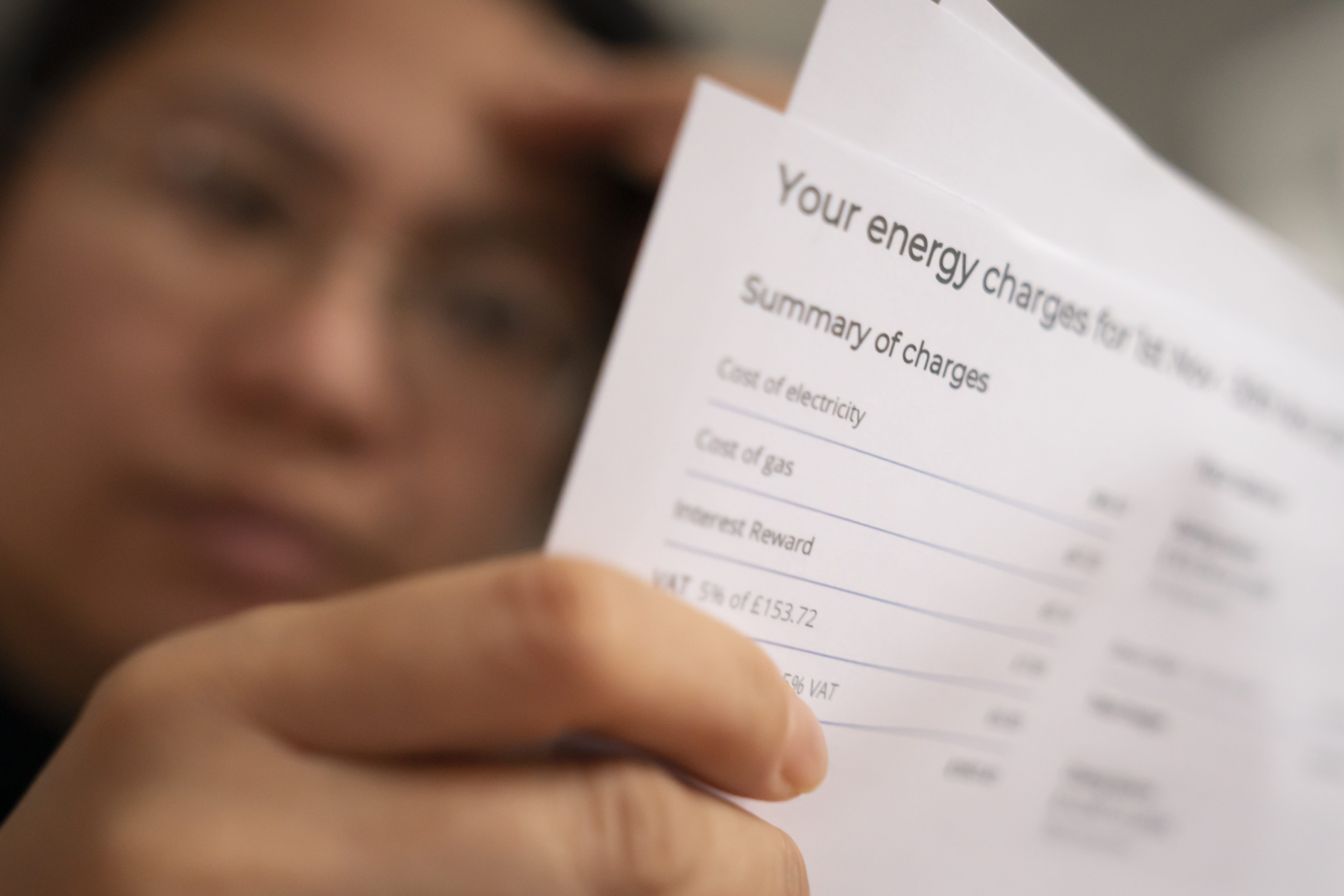Energy price cap predicted to fall in January in glimmer of hope for households
Prices are also forecast to fall slightly in both the second and third quarters of next year.

Your support helps us to tell the story
From reproductive rights to climate change to Big Tech, The Independent is on the ground when the story is developing. Whether it's investigating the financials of Elon Musk's pro-Trump PAC or producing our latest documentary, 'The A Word', which shines a light on the American women fighting for reproductive rights, we know how important it is to parse out the facts from the messaging.
At such a critical moment in US history, we need reporters on the ground. Your donation allows us to keep sending journalists to speak to both sides of the story.
The Independent is trusted by Americans across the entire political spectrum. And unlike many other quality news outlets, we choose not to lock Americans out of our reporting and analysis with paywalls. We believe quality journalism should be available to everyone, paid for by those who can afford it.
Your support makes all the difference.The average domestic energy bill is set to fall by 1% in January in a glimmer of good news for households, according to experts.
Energy consultancy Cornwall Insight said it expects the typical household’s energy bill to drop to an annual £1,697 a year from January 1 from the £1,717 cap that takes effect from October 1.
Prices are also forecast to fall slightly in both the second and third quarters of next year.
The drop, however slight, will be welcome news for households in England, Scotland and Wales who this week will see the average bill rise by around £12 a month or £149 a year from the current £1,568 for a typical dual fuel household in England, Scotland and Wales.
There remains a further six weeks or so for the wholesale market to influence our forecasts, and while the negligible quarter-on-quarter drop is welcome, it must be remembered that bills will still remain hundreds of pounds above historic levels
Cornwall Insight’s previous forecasts since August showed a slight quarter-on-quarter rise in January.
But on Monday it said a combination of the EU meeting its gas storage targets ahead of winter, strong global LNG supply outlooks, and improved confidence regarding gas and electricity imports ahead of winter had resulted in wholesale market prices falling.
However, bills still remain hundreds of pounds above pre-energy crisis levels, with little to suggest a return to historic averages is on the horizon.
Craig Lowrey, principal consultant at Cornwall Insight, said: “While households will have to endure a rise in the cap from October, our current forecasts suggest that this is a temporary blip.
“January to March, typically some of the coldest months of the year, often bring with them the biggest energy bills and, while our latest forecast is welcome news, it remains subject to the volatile wholesale gas and electricity markets.
“There remains a further six weeks or so for the wholesale market to influence our forecasts, and while the negligible quarter-on-quarter drop is welcome, it must be remembered that bills will still remain hundreds of pounds above historic levels.”
Ofgem changes the price cap every three months based on several factors, the most important of which is the price of energy on wholesale markets.
The energy price cap was introduced by the Government in January 2019 and sets a maximum price that energy suppliers can charge consumers in England, Scotland and Wales for each kilowatt hour (kWh) of energy they use.
The price cap does not limit a household’s total bills because people still pay for each unit of gas and electricity they use – the figures provided are calculated for an average-use household and if more energy than average is used, a household will pay above the cap.
Ofgem is currently considering the future of price protection, including the suitability of the price cap and a potential permanent ban on so-called acquisition tariffs – cheaper prices for new customers to lure them away from their existing supplier.
Cornwall Insight is calling for a reform of the price cap or introduction of social tariffs, but warned longer-term solutions were also vital.
Mr Lowrey said: “While there is hope that a renewed focus on building a sustainable domestic energy supply could eventually lower bills as we reduce reliance on volatile imports, these benefits will take time to materialise.
“Meanwhile, many people are facing financial difficulties right now.”